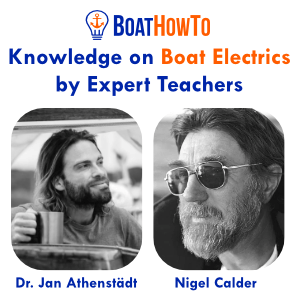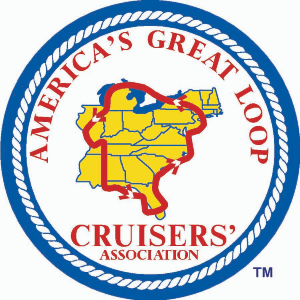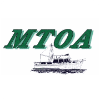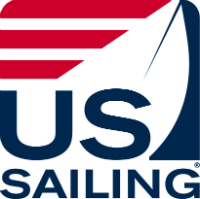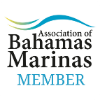
Georgia says its new anchoring regulations and requirements for persons sleeping on boats are sensible and require little change. Many boating industry representatives disagree and continue to push for changes that will soften enforcement options related to where, when and how vessels may anchor in the coastal waters of the state.
Following on the heels of the public comment period for Georgia’s new anchoring laws, the Department of Natural Resources (DNR) held an informal stakeholders meeting on July 31, 2019 comprising members of its staff and representatives from various boating groups. The objective of the session was to report the latest actions specific to anchoring permits, associated fees and to gather more information from the boating industry about its positions on the new regulations.
House Bill 201 (HB201) was signed into law in May 2019 and provides sweeping changes to laws that govern vessels anchoring in the coastal waters of the state as well as those docked at marinas if a person spends the night aboard. The new law goes into effect January 1, 2020 and carries criminal penalties for violations.
Georgia DNR maintains that at the heart of the issue is an effort by the state to better manage “live-aboard” vessels and the potential impact those boats have on the environment. Also propelling the new regulations is an increase in the number of abandoned and derelict vessels (ADV) in the state and how to deal with them.
DNR reports that over 240 letters and emails were submitted specific to HB201 during the public comment period, which ended July 17, 2019, and represented a historically large number of responses for the department. This issue has galvanized boaters who transit or use the coastal waters of Georgia. Boating industry leaders are also watching this issue as it may set the stage for other states attempting to deal with similar questions.
Doug Haymans, Director of DNR Coastal Resource Division, opened the stakeholder meeting with a report that “permit fees are off the table.” While permits to anchor in the coastal waters of Georgia may still be required, boaters won’t be charged for them.
The two-hour discussion centered on the challenges that Georgia DNR faces in managing irresponsible boat owners who either do not obey pump out regulations or anchor their vessels and leave them unattended, which can result in hazards to navigation, environmental or property damage if they break loose.
DNR reported that shellfish aquaculture activities on the state are on the rise and treated and untreated sewage from vessels anchored near those areas are also a concern. No substantiating data was offered to support that boats are fouling the state’s water quality with sewage. In response, Jack White of Save Georgia’s Anchorages presented figures from Georgia Environmental Protection Division (EPD) revealing the millions of gallons of raw sewage dumped into state waters from municipalities annually. He offered that if every vessel anchored in the state in any given year were to pump its holding tanks the comparison against local sewage releases is inconsequential and irrelevant.
While not specific to the new regulations, DNR is also beginning to explore setback distances where boats must anchor away from structures and protected areas. Stakeholders in attendance argued that other states have arrived at standards for setbacks and that easy-to-follow and understand regulations should be considered. DNR would not agree to a standard and suggested that a patchwork of distances may be necessary due to any number of reasons.
Georgia and other states have wrestled with the nuances of “live-aboards” for many years and how to manage their use of public waterways. Defining a “live-aboard” vessel and persons on those vessels is an underlying issue in HB201. As written, the definition has been scrutinized and challenged by boaters and industry groups. To that end, DNR and state legislative representatives agreed during the meeting to revisit the description as it applies to this measure.
When pressed for some of the underlying reasons for such sweeping changes to Georgia’s laws, DNR representatives stated that complaints from homeowners about anchored vessels in front of their property, including boaters playing loud music and running generators, has contributed to the problems that HB201 is attempting to solve. Boating representatives responded that the depth of new regulations appear to be somewhat heavy handed in view of the apparent small number of irresponsible vessel owners compared to the thousands that transit and enjoy coastal waters each year in the state. Additional observations were provided to DNR that many of the underlying concerns about the new regulations remain, despite the promise that permit fees will be removed.
Director Haymans will present the public comments and his recommendations to members of the DNR Board in August. This will be followed by another public comment period and a public meeting to be announced. DNR may adjust the final rules following this period. The rules will then be submitted to the DNR board for approval and implementation will take place January 1, 2020.
In addition to DNR staff, attending the July 31 meeting were Georgia state Representatives Don Hogan and Ron Stephens; Kim Russo, executive director of America’s Great Loop Cruisers’ Association (AGLCA) and representative for three other boating groups including Seven Seas Cruising Association (SCCA), Marine Trawler Owner’s Association (MTOA) and DeFever Yacht Owners; Lee Gatts from the National Marine Manufacturers Association (NMMA); Charlie Waller owner of Isle of Hope Marina and executive director of Georgia Marine Business Association (GAMBA), and Jack White and James Newsome from Save Georgia’s Anchorages (SGA).
See these links for background and additional information:
Cruising World article, July 10, 2019
Cruising World article, June 12, 2019
Waterway Guide article, What Georgia Stands to Lose
Waterway Guide article, Six Problems with Georgia’s New Law
Waterway Guide article, Georgia Anchoring Regs Frighten Boaters
Facebook Page Save Georgia’s Anchorages

